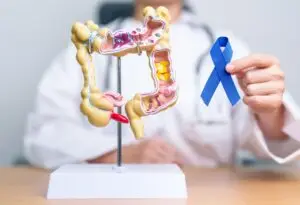Reviewed by Leigh Ann Scott, MD of Forum Health Las Colinas
When women enter mid-life, estrogen and progesterone levels begin to decline; this can affect their vaginal, urinary, and sexual health. Every woman will experience symptoms of hormonal decline differently. Hormonal changes can occur due to age such as with perimenopause and menopause. Other factors that can influence balance include diet, lifestyle, illness, and stress.
The term “menopause” technically means the cessation of menses. However, menopause isn’t so much of an event as it is a process.
For some, this process can start several years before the cessation of periods. For others, it takes only a few years. This time frame is referred to as perimenopause and is a natural part of aging. There is an exception to this process if you have had a hysterectomy especially if your ovaries are removed. Rather than going through a gradual process of hormonal decline, you will experience full-on menopausal symptoms within weeks after having surgery.
The symptoms of perimenopause/menopause can include the following:
- Loss of muscle mass
- Irregular periods or heavier periods
- Hot flashes and night sweats
- Headaches/migraines
- Irritability
- Anxiety and/or depression
- Anxiety and/or depression
- Muscle and joint pain
- Weight gain
- Loss of bone mass (osteoporosis)
- Decreased ability to handle stress
- Loss of libido
- Insomnia
- Hair growth in unwanted places such as on the face
- Decrease in energy levels
- Hair loss
- Heart palpitations
In addition to these common symptoms, hormonal changes can also affect your vaginal, urinary, and sexual health. If you are perimenopausal or have reached menopause, you are likely experiencing some unpleasant effects in these three areas. It is our goal to help you understand exactly how hormones can cause these types of changes, and to reassure you that there is help and hope!
According to the National Institute of Health (NIH), studies show:
“The female genital and lower urinary tracts share a common embryological origin, and both are sensitive to the effects of the female sex hormones throughout life. Estrogen is known to have an important role in the function of the lower urinary tract and estrogen and progesterone receptors have been demonstrated in the vagina, urethra, bladder, and pelvic floor musculature.
In addition, estrogen deficiency is known to cause atrophic change and may be associated with lower urinary tract symptoms such as frequency, urgency, nocturia, incontinence, and recurring infection.
These may also co-exist with symptoms such as atrophy, itching, vaginal burning, and dryness.”
Our providers at Forum Health are highly-trained specialists. We can help to alleviate your symptoms with the use of bioidentical hormone therapy. Our providers focus on wellness as a whole and look at your overall health as well.
Vaginal Health
Estrogen is the “primary” female hormone, however, progesterone and even testosterone are equally as important in a woman’s health. All of the cells in the vagina have estrogen and progesterone receptors. But estrogen is the hormone that keeps the vagina elastic, moisturized, and well supplied with blood.
While estrogen levels decline during perimenopause, they can do in an irregular manner. This is why some experience irregular or heavier periods.
With lower estrogen levels, the changes that occur in the vagina can cause symptoms such as vaginal dryness, atrophy, itchiness, burning, and painful sex. The vaginal biome can more easily be thrown off balance which can cause one to be more prone to infections.
Urinary Health
There are multiple factors that contribute to urinary health and incontinence. Reduced levels of estrogen can cause thinning of the lining of the urethra. Women can experience incontinence at any age but are more prone to it when the sex hormones decline.
Hormonal changes can affect muscle strength in the pelvic area. At times, you can feel a constant urge to pee, which is also known as an overactive bladder.
Weakened muscles from aging can also cause stress incontinence. You may experience this from laughing, coughing, or sneezing. Usually, this leakage is just a few drops of urine but can get worse.
“Urge” incontinence can cause women to lose bladder control too quickly, or even entirely. The urge to urinate can come on suddenly and you may not be able to make it to the bathroom in time.
Estrogen depletion and its side effects on the urinary system can also make you more prone to urinary tract infections as you age.
Hormone decreases are not the only cause of urinary problems and incontinence. Other things that can contribute are:
- Drinking caffeinated and alcoholic beverages can cause your bladder to fill your bladder more quickly which can then cause you to urinate more frequently.
- Being overweight puts extra pressure on the bladder which can also cause you to pee more.
- Urinary tract infections can cause incontinence but the treatment of the condition should alleviate this.
- Some medications such as diuretics and steroids.
Supplemental estrogen may not alleviate urinary incontinence entirely. It’s important to talk with your provider about other possible causes. There are also exercises that you can do to help strengthen the pelvic muscles.
Sexual Health
It’s no wonder that women can lose their sex drive when hormones start to decline! As we’ve already explained, there are mental and physical changes that can be unpleasant, and those alone can make you lose your desire for sex.
Additionally, it’s easy to fall into the trap of feeling hopeless about your sex life. Sex isn’t just about procreation or physical pleasure. It’s also a special way to experience emotional and physical intimacy with your partner. And, it’s an important part of your overall well-being.
We have already addressed how declining estrogen levels affect vaginal health overall, but testosterone is another hormone that is related to libido. Testosterone decline doesn’t necessarily begin in midlife. For women and men both, testosterone levels generally peak in the late twenties to early thirties, and then gradually start to wane. On average, a woman’s testosterone levels at 50 years old will be about half of what they were in her twenties.
It’s a myth that testosterone is only a male hormone. Women produce it as well, but in much smaller quantities. There are many overall health benefits to testosterone supplementation.
Hormones in Synergy
Hormones act in a synergistic manner with each other. If one is out of balance, others are likely to be as well. According to the Cleveland Clinic, there are over 50 hormones in a woman’s body. These signals “tell your body what to do and when to do it.” Hormones are essential for your health and for life.
There are some providers out there who advertise that they can help you feel better with hormone replacement therapy. But, they may only test your sex hormones and will prescribe you supplementation for those.
If you’ve been down this road before, you already realize that while this type of approach may alleviate some of your symptoms, you will not feel optimal and your overall health concerns may be overlooked.
We Want to Help You!
Our providers at Forum Health understand that all hormones work synergistically with each other. We also want to keep your overall health in mind, and our extensive lab panels check other key health markers. We can give a much more thorough idea of what’s going on within your body and mind.
There are so many other factors that affect your endocrine system and long-term health. Because we always look at the big picture, we are able to help not only alleviate your symptoms but also get you to feel like your old self again.
We want to ensure that you’re healthy for a long time to come! All of us here spend plenty of time with you to get to know you and your specific concerns. Lab results don’t always give us the full picture. Your diagnostic testing may show that you are in the “normal” range, but you are still not feeling good. We offer our services in a warm, compassionate, and safe environment.






